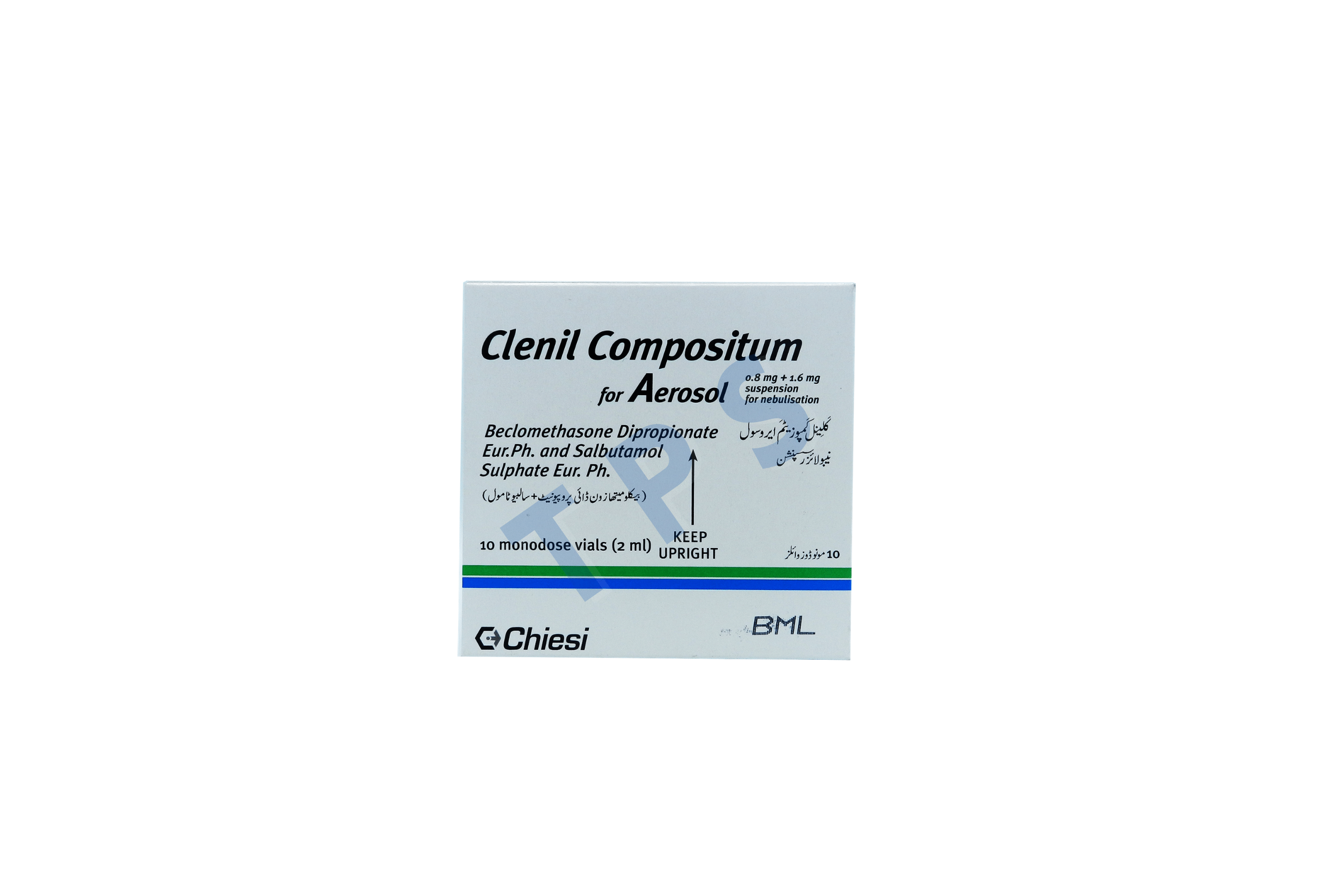Clenil Compositum-A Indications
Clenil Compositum-A is primarily indicated in conditions like Allergic rhinitis, Asthma, Dermatitis, Eczema, Granuloma annulareg Lichen planus, Lichen simplex, Lupus erythematosus, NSAID-associated gastric and duodenal ulcers (prophylaxis), Prophylaxis of asthma, Pruritus ANI, Psoriasis, Vasomotor rhinitis, and can also be given in adjunctive therapy as an alternative drug of choice in Liver transplant.
Contraindication
Clenil Compositum-A is contraindicated in conditions like Acne, Respiratory tract infections, Pulmonary TB, Ulcers, Rosacea,Perioral dermatitis.
Side Effects
The severe or irreversible adverse effects of Clenil Compositum-A, which give rise to further complications include Dermal thinning, Telangiectasia, Striae, Glaucoma, Cataract, Osteoporosis, Increased IOP (intraocular pressure).Clenil Compositum-A produces potentially lifethreatening effects which include Addisonian crises, Cushing’s syndrome, which are responsible for the discontinuation of Clenil Compositum-A therapy. The signs and symptoms that are produced after the acute overdosage of Clenil Compositum-A include Hallucinations. The Symptomatic adverse reactions produced by Clenil Compositum-A are more or less tolerable and if they become severe, they can be treated symptomatically, these include Urticaria, Irritation, Oropharyngeal candidiasis, Dysphonia, Epithelial damage, Allergic reactions, Flushing, Sneezing, Xerostomia, Nasal irritation, Dysgeusia.
Warnings
Beclomethasone should be used with caution in patients with active tuberculosis infection of respiratory tract or in untreated fungal, bacterial or systemic viral infections. Corticosteroids should only be used systemically with great caution in the presence of congestive heart failure (CHF), recent myocardial infraction (MI), hypertension, diabetes mellitus, epilepsy, glaucoma, hypothyroidism, liver failure, osteoporosis, peptic ulceration or renal impairment. Children may be at increase risk of some adverse effects, corticosteroid causes growth retardation and prolonged use is rarely justified. Passive immunization is recommended to non-immune patients who do come in contact with chickenpox or measles. Live vaccine should not be given to patients receiving high dose systemic corticosteroid therapy nor for atleast 3 months afterwards, killed vaccine or toxoids may be given, although the response may be attenuated. During prolong treatment with corticosteroids, patients should be examined regularly, sodium intake may need to be reduced and calcium and potassium Supplement may be necessary. Patient should carry cards given full details of their corticosteroid therapy. Avoid use during pregnancy. Use nasal steroids with caution until healing has occurredo.



Reviews
There are no reviews yet.